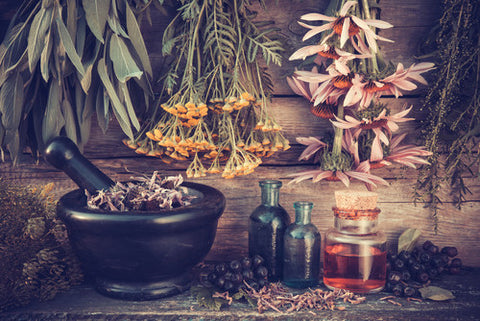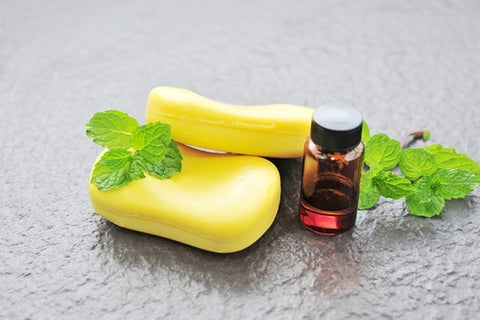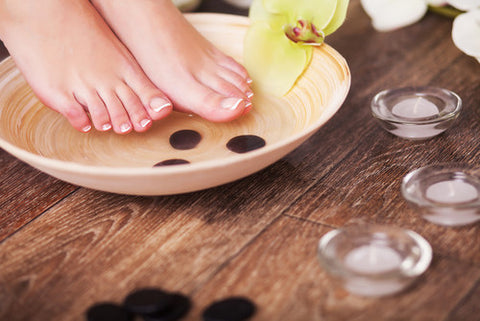When it comes to essential oils, everyone knows how to put them in a diffuser to reap the benefits of aromatherapy. But did you know that there are other ways that you can use your essential oil that will provide a tangible benefit to you and your loved ones? The positive properties of essential oils come from the oil’s natural anti-inflammatory, antibacterial, and antimicrobial properties.
Essential oils have been used for thousands of years by hundreds of different cultures. They have been used not just for aromatherapy, but also personal care, cleaning, and even for their natural healing properties.

One thing to keep in mind when you use essential oils is that you should not use undiluted essential oils on your bare skin. There are some who disagree with this, saying that pure essential oil on the skin can be used for various things. However, because everyone’s tolerance and sensitivity to the compounds found in essential oil can vary widely, if you’ve never applied essential oils to your skin, dilute them.
When you dilute an essential oil, you use a carrier oil. Carrier oils are neutral and stable, so they will not evaporate or add unwanted properties to an essential oil. These include sweet almond oil, jojoba oil, olive oil, or even shea butter. There is no real standard for dilution as every person has a different sensitivity to essential oils. In general, start with one drop of essential oil to ever teaspoon of carrier oil. This will give you a roughly 1% solution strength. From there, you can increase the amount of essential oil as need be to suit your tolerance and needs.
Cleaning With Essential Oils

- Lemon or another citrus essential oil can dissolve gummy stuck-on disasters. Use a couple of drops to get gum out of hair or out of the carpet. A drop or two will remove tree sap from tools and sticky label residue from containers.
- Citrus essential oils are also great for cleaning permanent marker from non-porous surfaces.
- Spiders find peppermint oil repugnant. If you have an area where they like to lurk, put one or two drops of oil on a cotton ball and tuck it there.
- Keep ants out! Make a spray out of 5 drops of peppermint oil to 1 cup of water. Shake well and spray into cracks where you notice them coming in.
- When you change your box filters in your HVAC system, add a drop of essential oil onto the filter on the exit side. The oils will refresh your entire home.
- Eucalyptus Oil is great for cleaning. Combine with tea tree oil for a great cleaning spray. Add four drops of each to 1 cup of warm water in a spray bottle. Use to remove mildew and you’ll be disinfecting and deodorizing at the same time.
- Make a natural disinfectant and cleaner by combining lemon and tea tree essential oils with warm water. Use in a spray container to clean hard non-porous surfaces naturally without harsh chemicals.
- If you or someone in your household smokes, get rid of the old smoky smell by adding tea tree oil, eucalyptus, and rosemary oil to warm water in a spray bottle. Spray when needed to naturally deodorize the air.
- If you have a dishwasher, add a drop or two of lemon essential oil before you start it. This will help ensure a spot free rinse that keeps your dishes sparkling.
Personal Health Care

- If you have kids who seem to get the before-bedtime wiggles and have trouble falling asleep, sprinkle some lavender oil on their pillow. You can also add a couple of drops onto their favorite teddy to help them calm down.
- If you’ve had a tough day on your feet, relax and soothe those tired dogs. Add a couple of drops of eucalyptus oil to a large bowl of warm water to help revitalize and soothe your feet.
- If you’re feeling tense and overwhelmed, apply diluted lavender essential oil to your temples. The smell will take effect more quickly than your normal diffuser.
- Peppermint oil, properly diluted, can help stave off or reduce the effects of a migraine. As soon as you feel one coming on, apply to your temple and the base of your neck to allow the blood flow to increase and your veins to relax.
- Lavender oil is a natural disinfectant. Apply diluted essential oil to a scrape of cut to keep it clean and reduce inflammation.
- Lavender can also help reduce tension in the jaw and neck by applying a few drops behind the jaw and massaging it into sore and stiff neck muscles.
- Add a diluted essential oil to sugar or rock salt to make your own homemade sugar or salt scrub. Use in the bath or on your face as you would a commercial product.
- Fight nausea from indigestion or sickness by breathing in peppermint oil. In some cases, ginger or lavender oil will also help.
- Lavender oil also helps take the itch and sting out of bug bites. Apply a few diluted drops and rub into the bite to soothe the sting.
- After workout muscle soreness can be soothed with a homemade eucalyptus rub. Add some eucalyptus and peppermint oil to an unscented lotion and rub into the affected area.
As you can see, essential oils have more uses than just percolating in your diffuser for aromatherapy. Experiment with your favorite oils to find out more things you can do to help improve your life.


